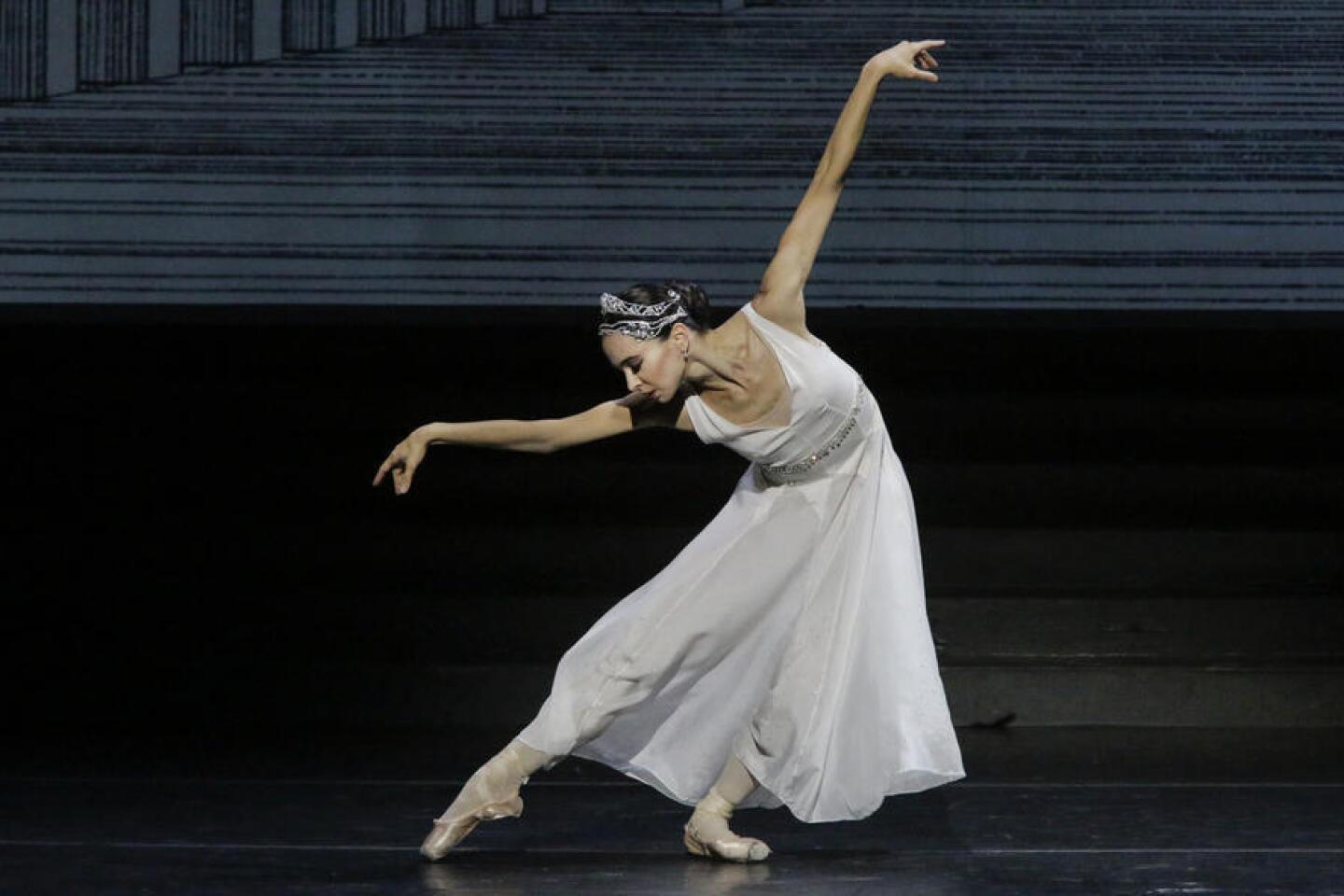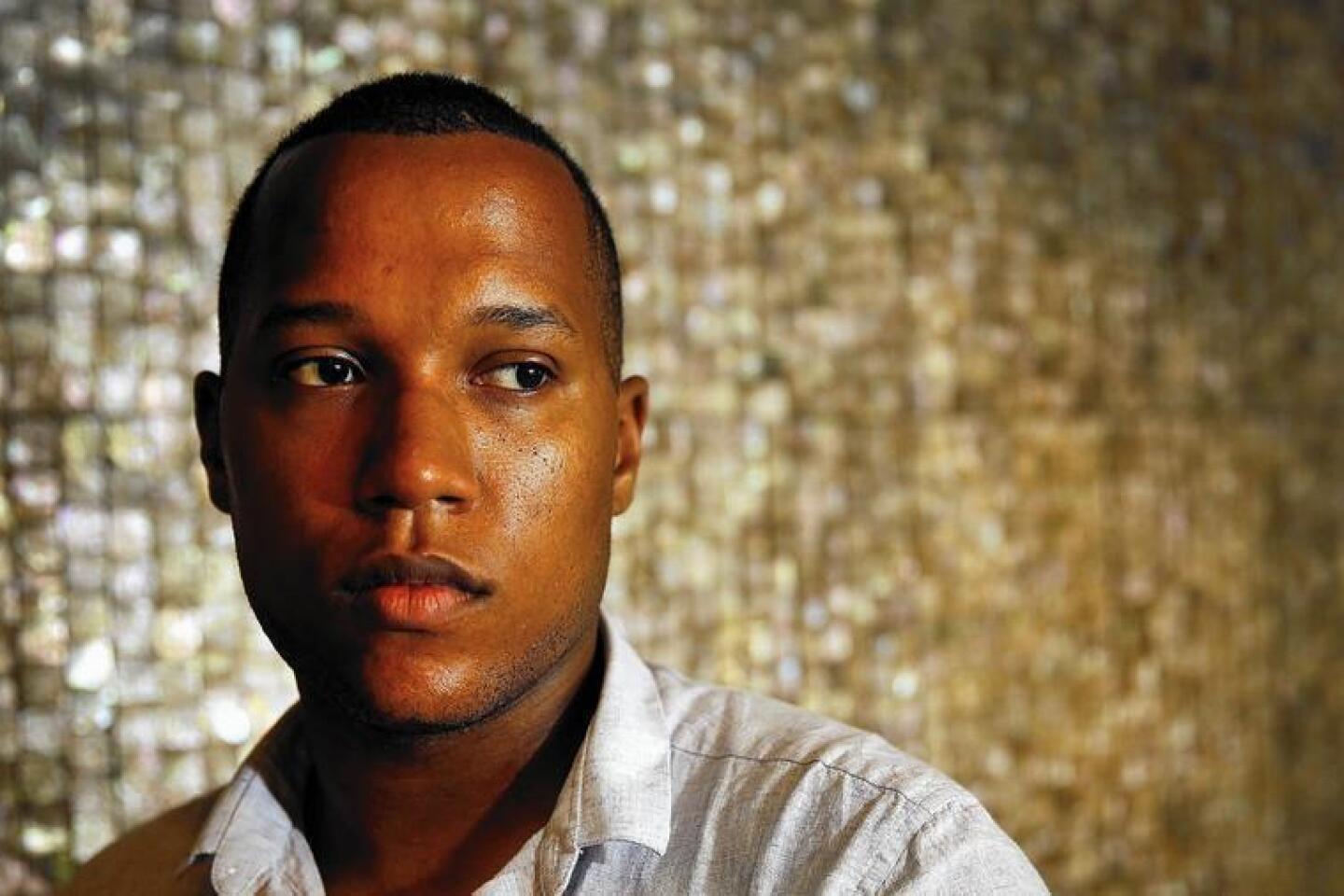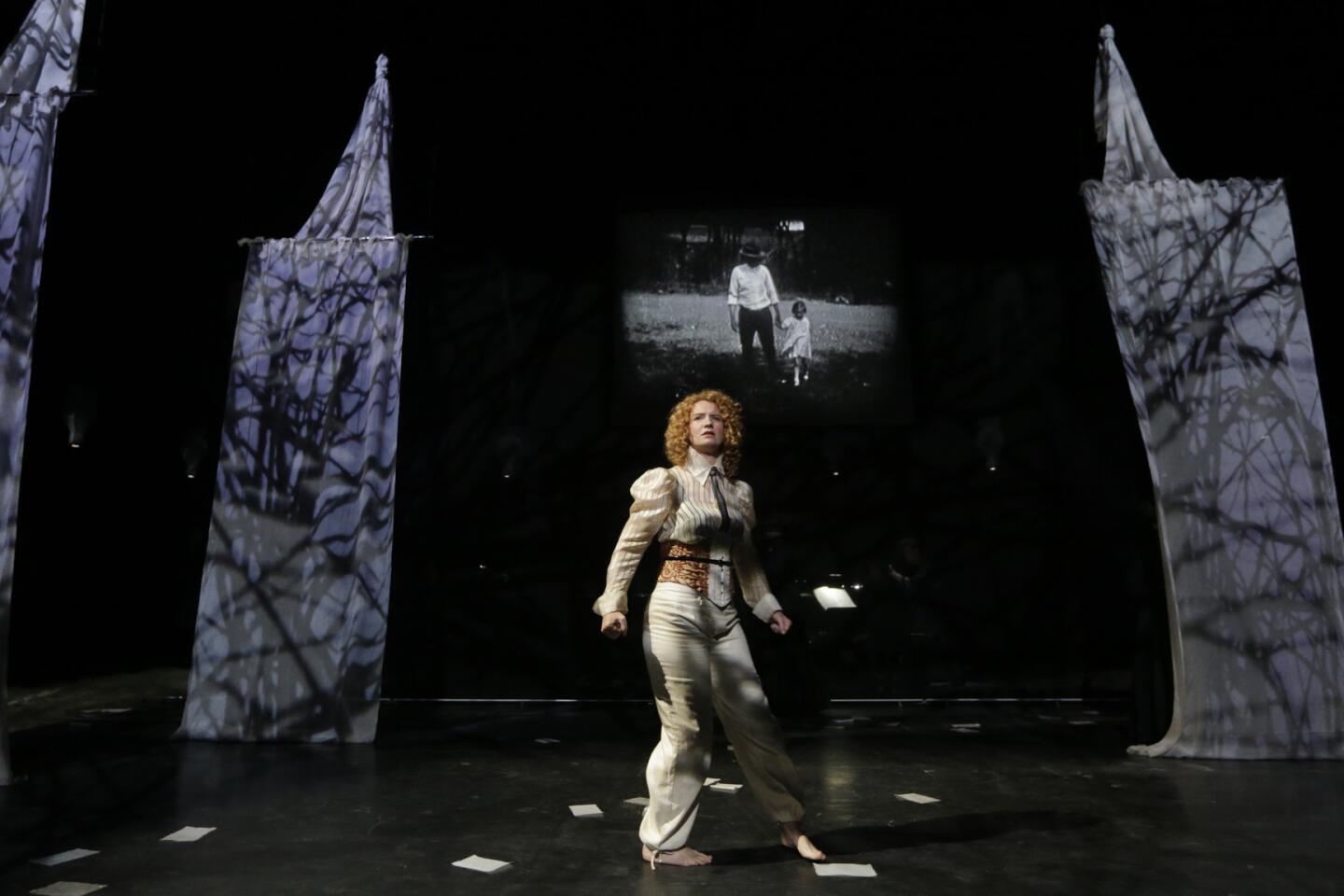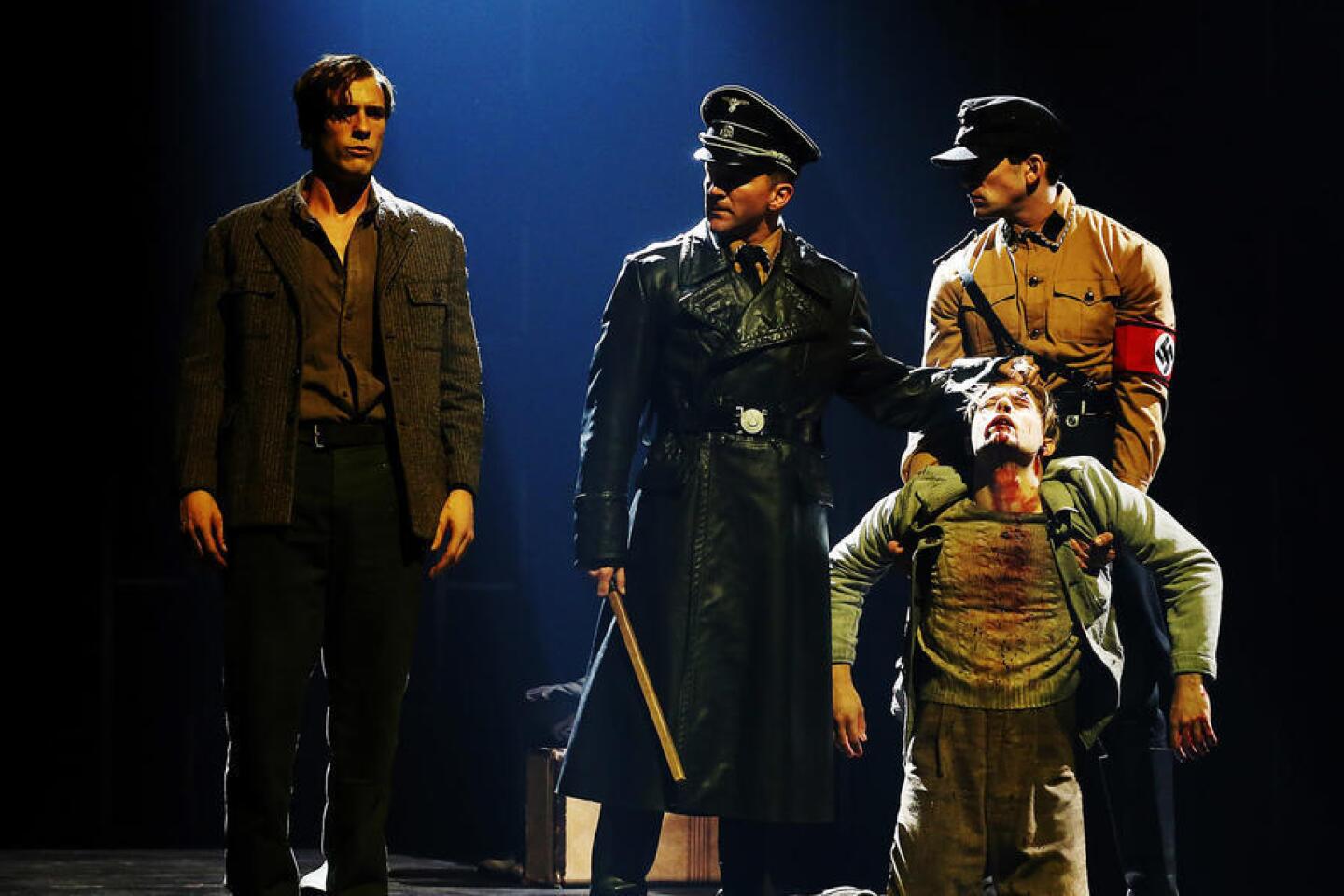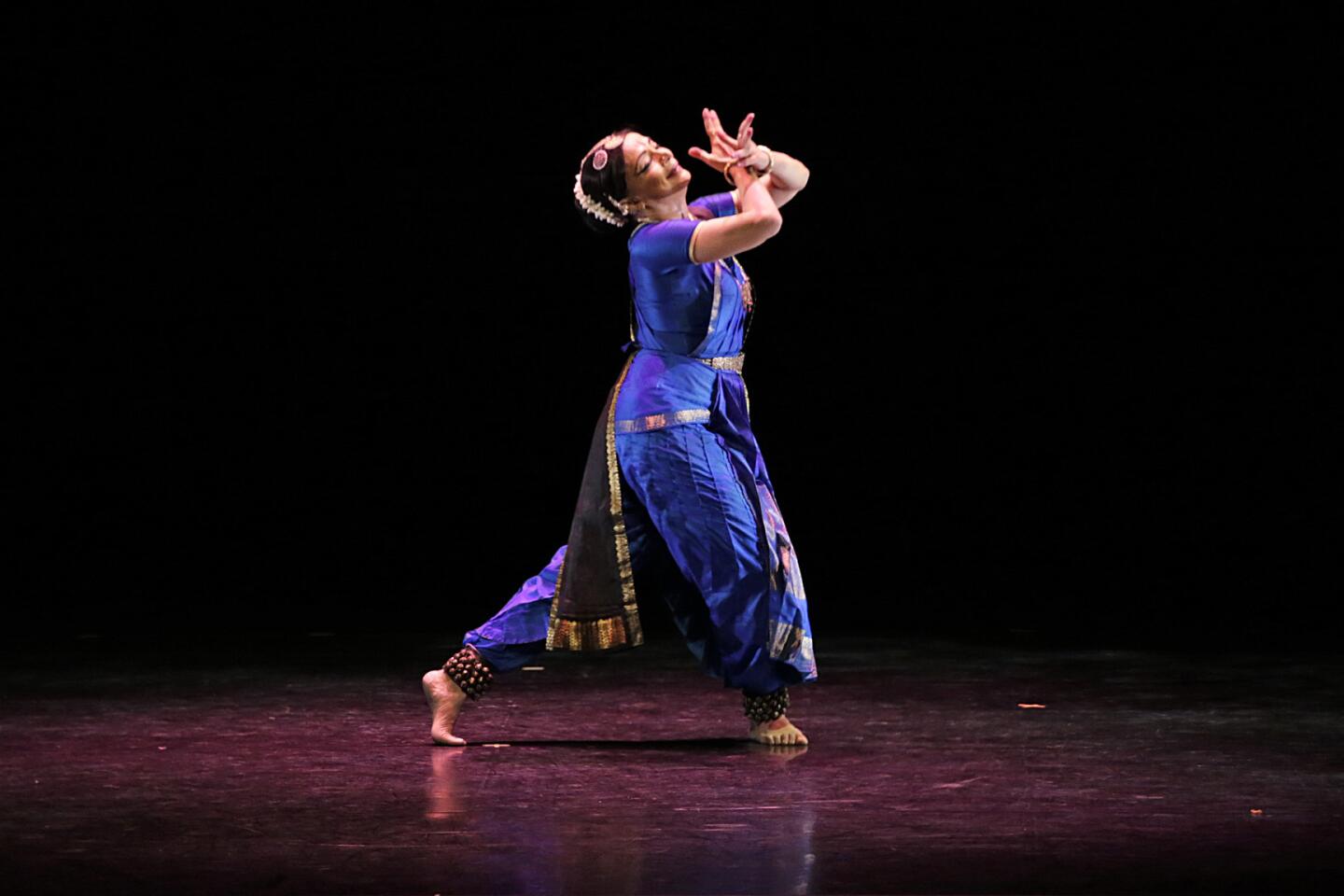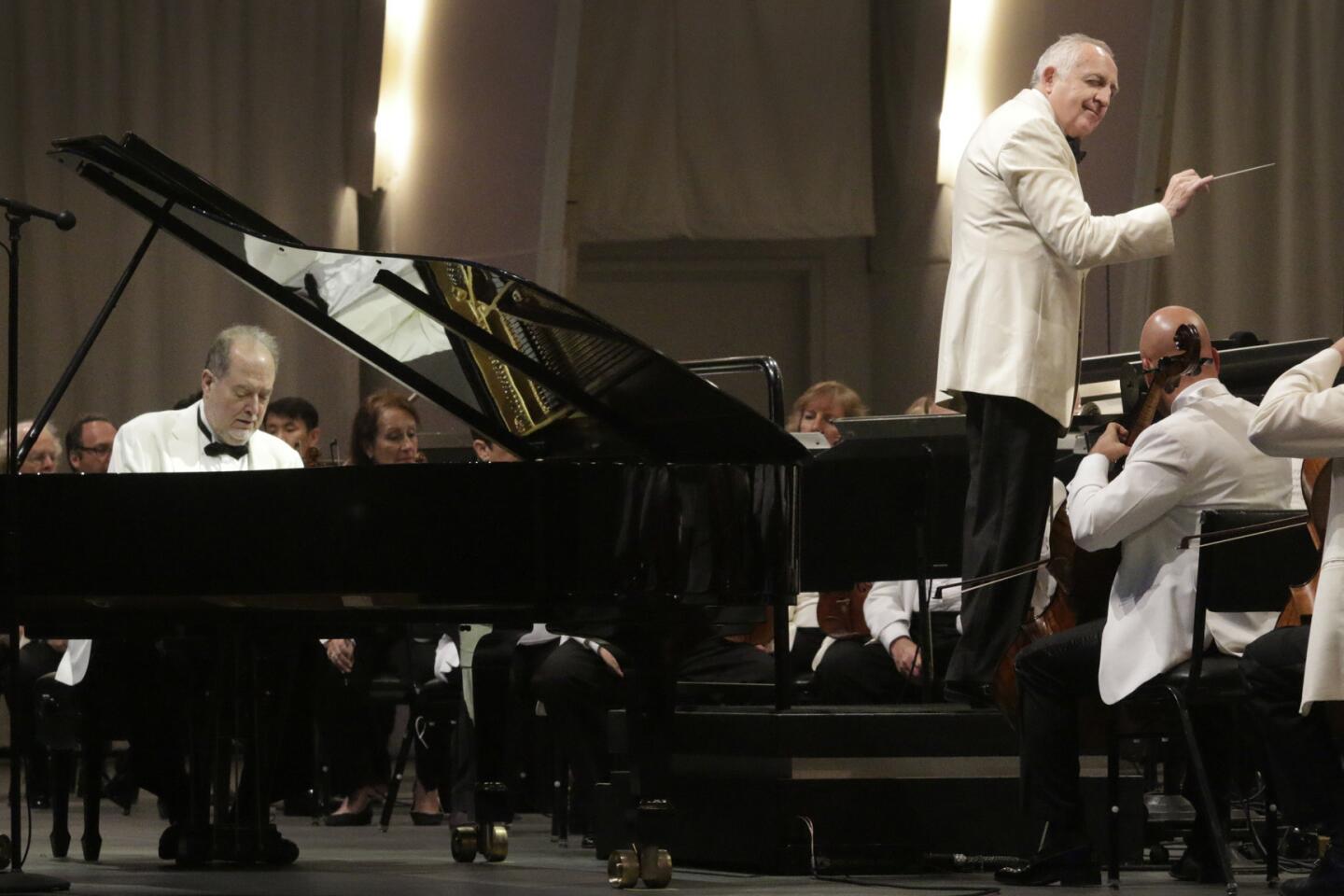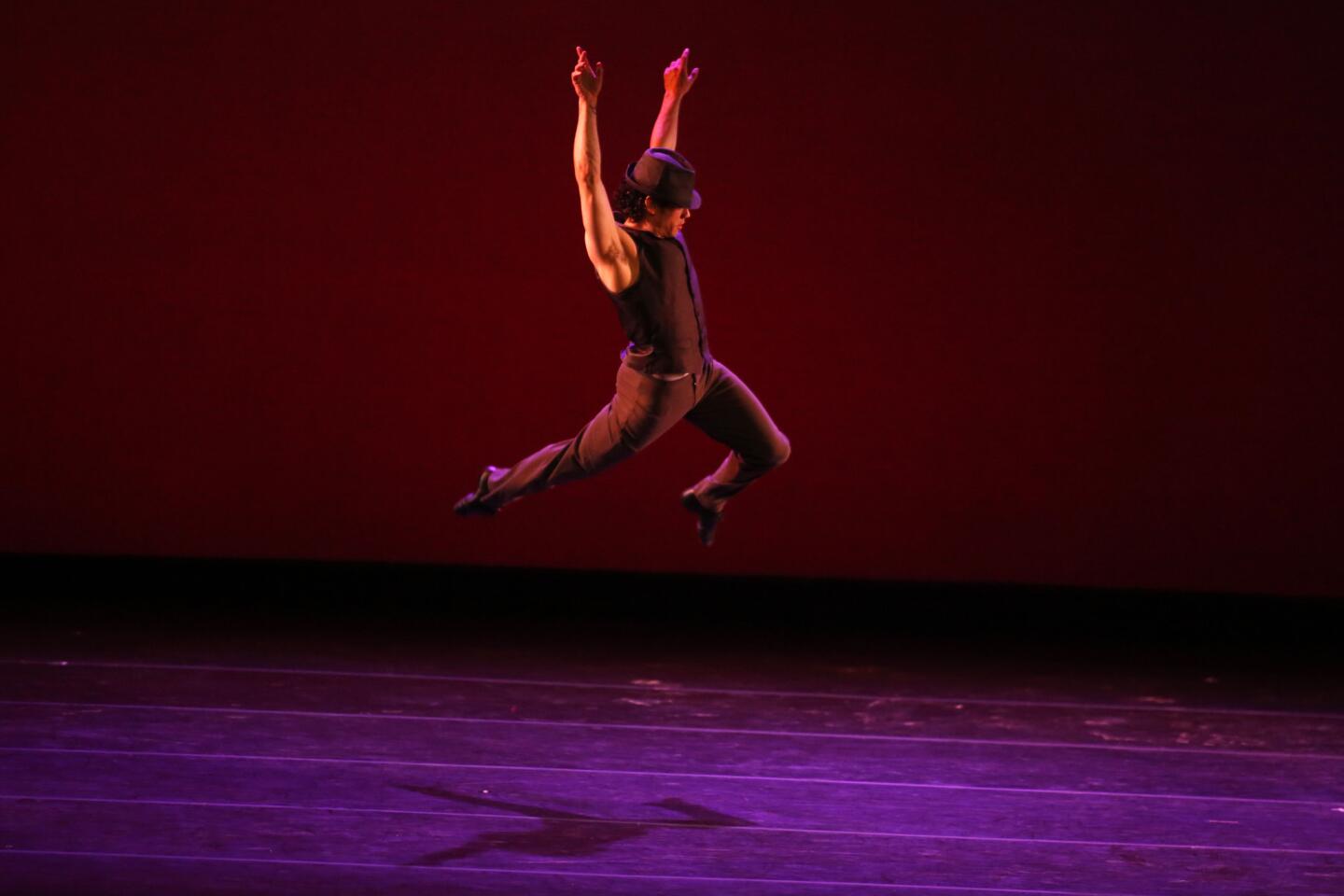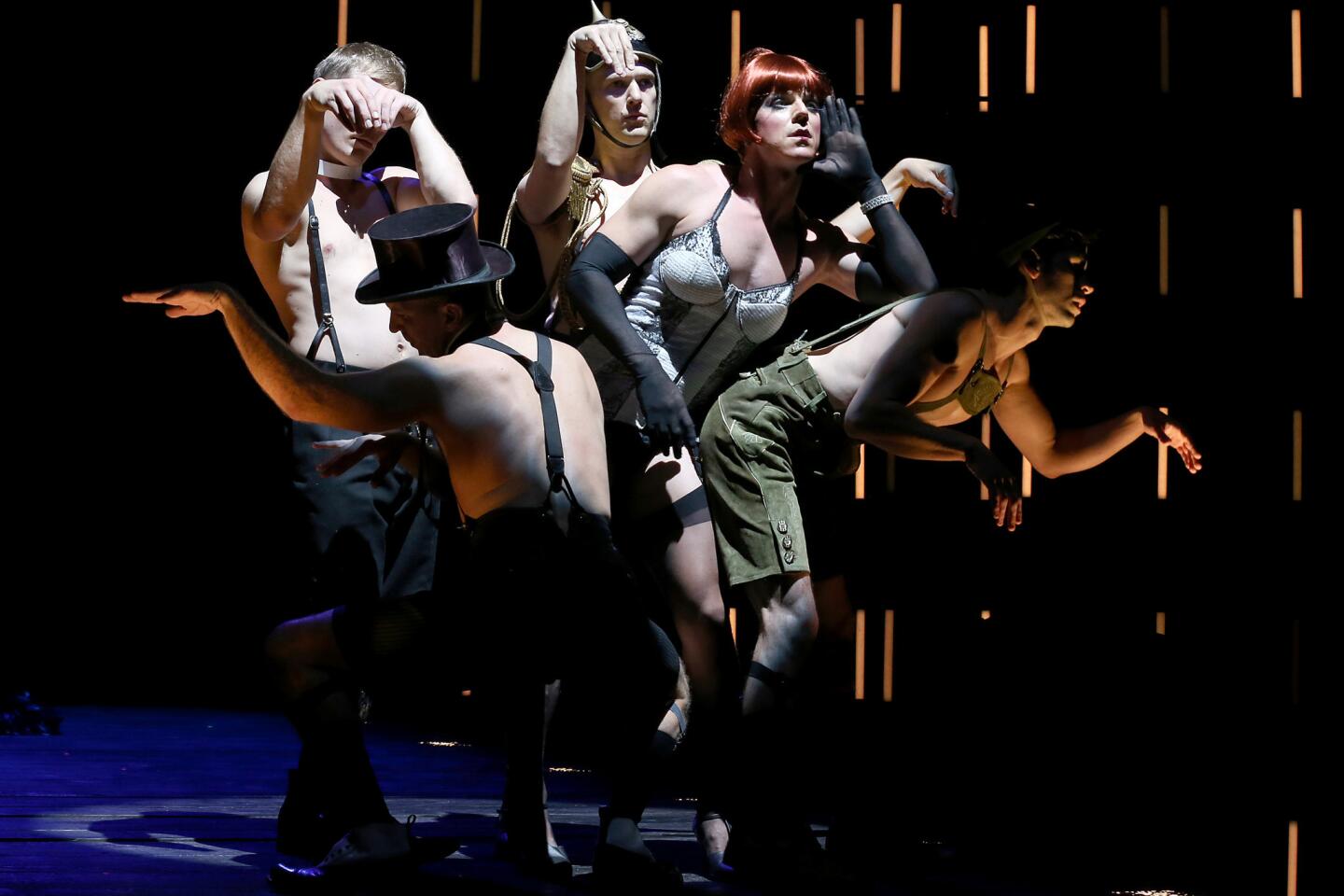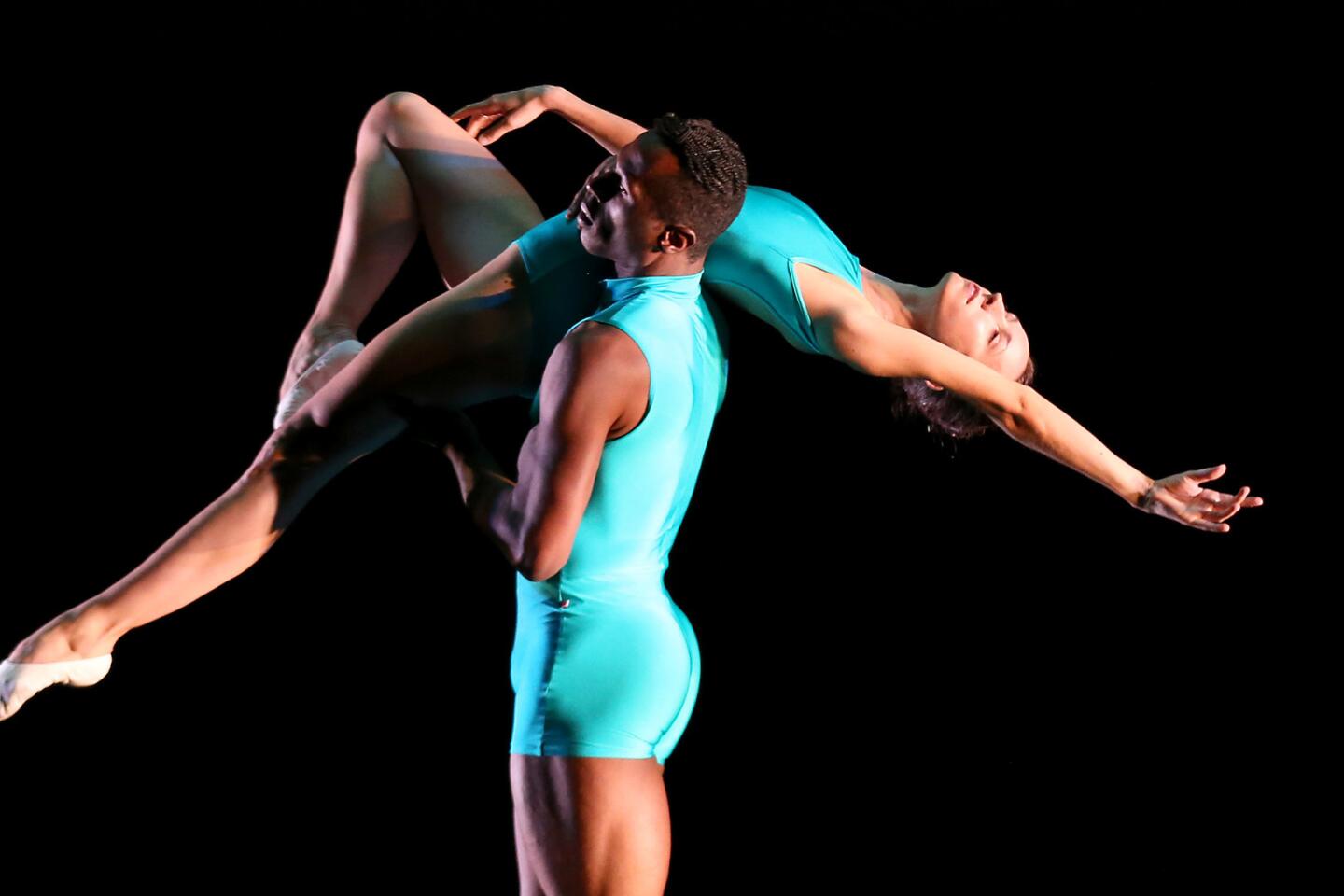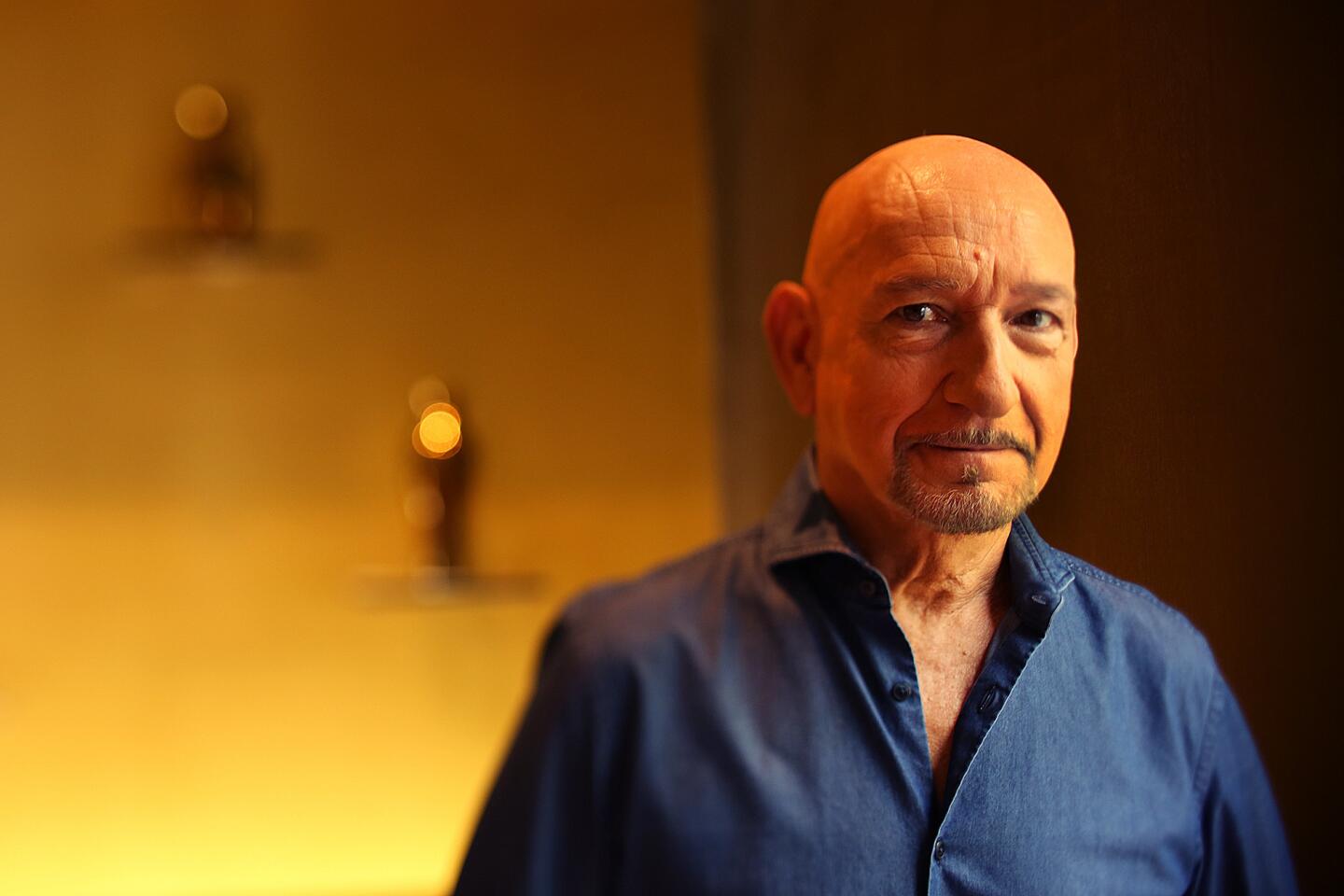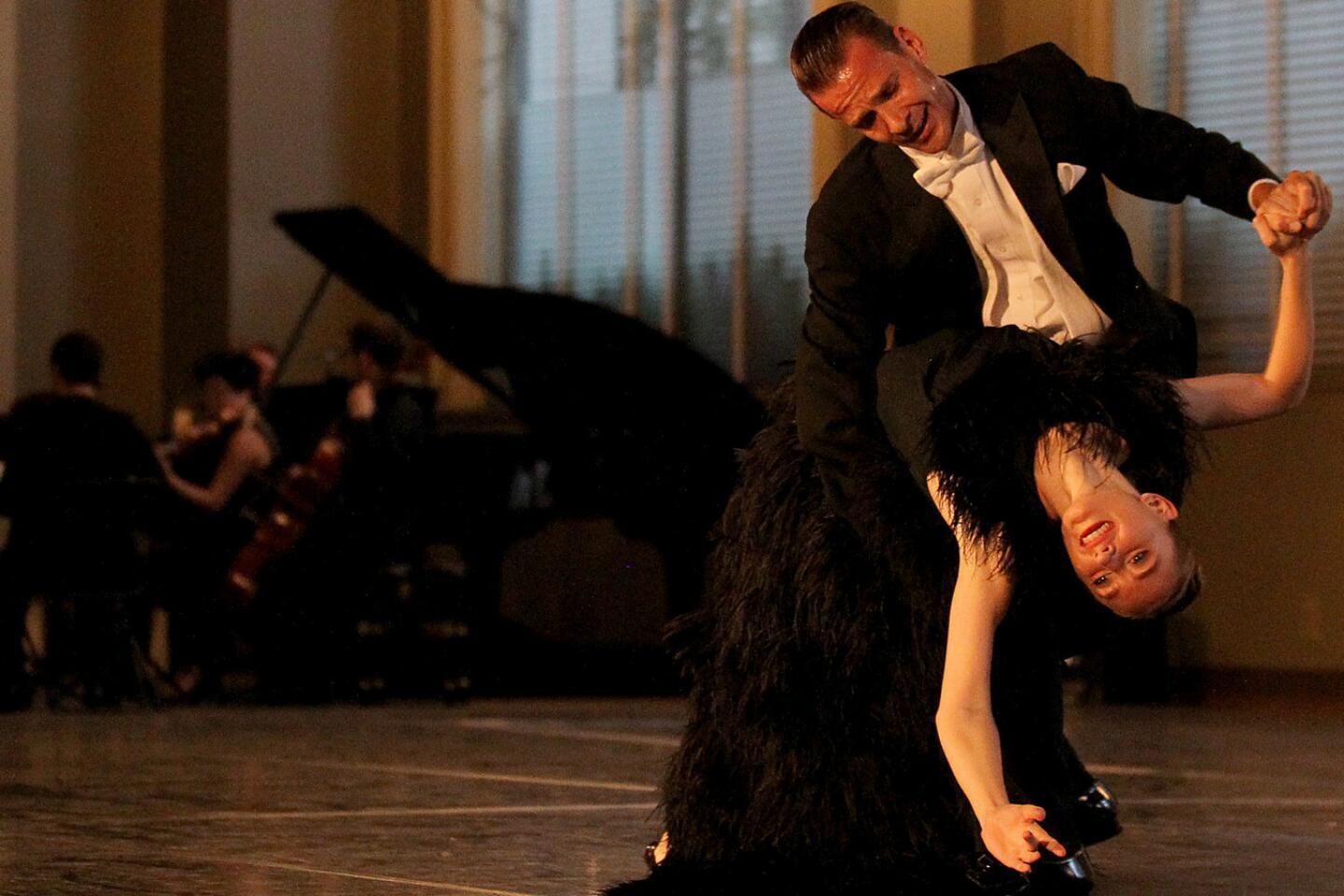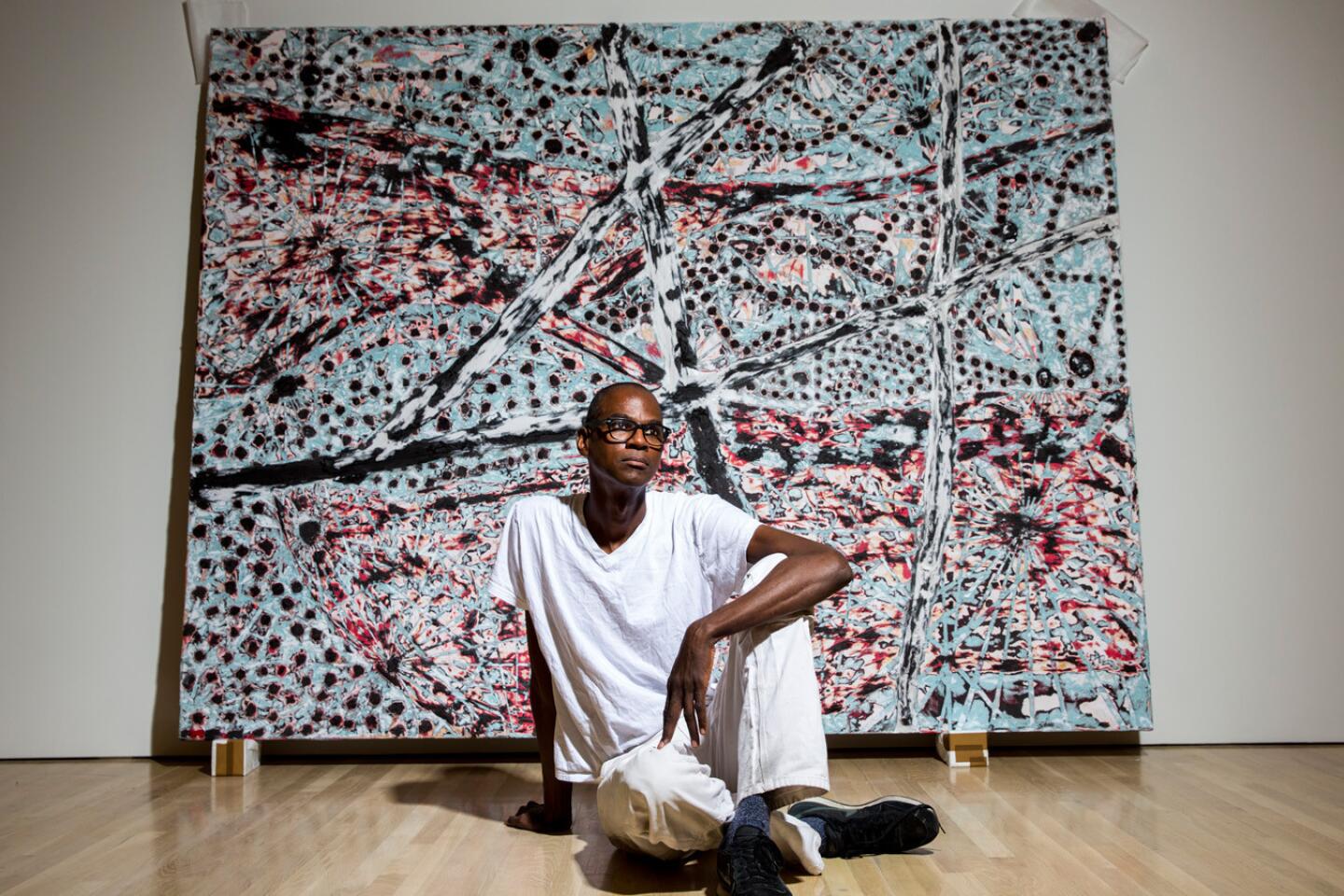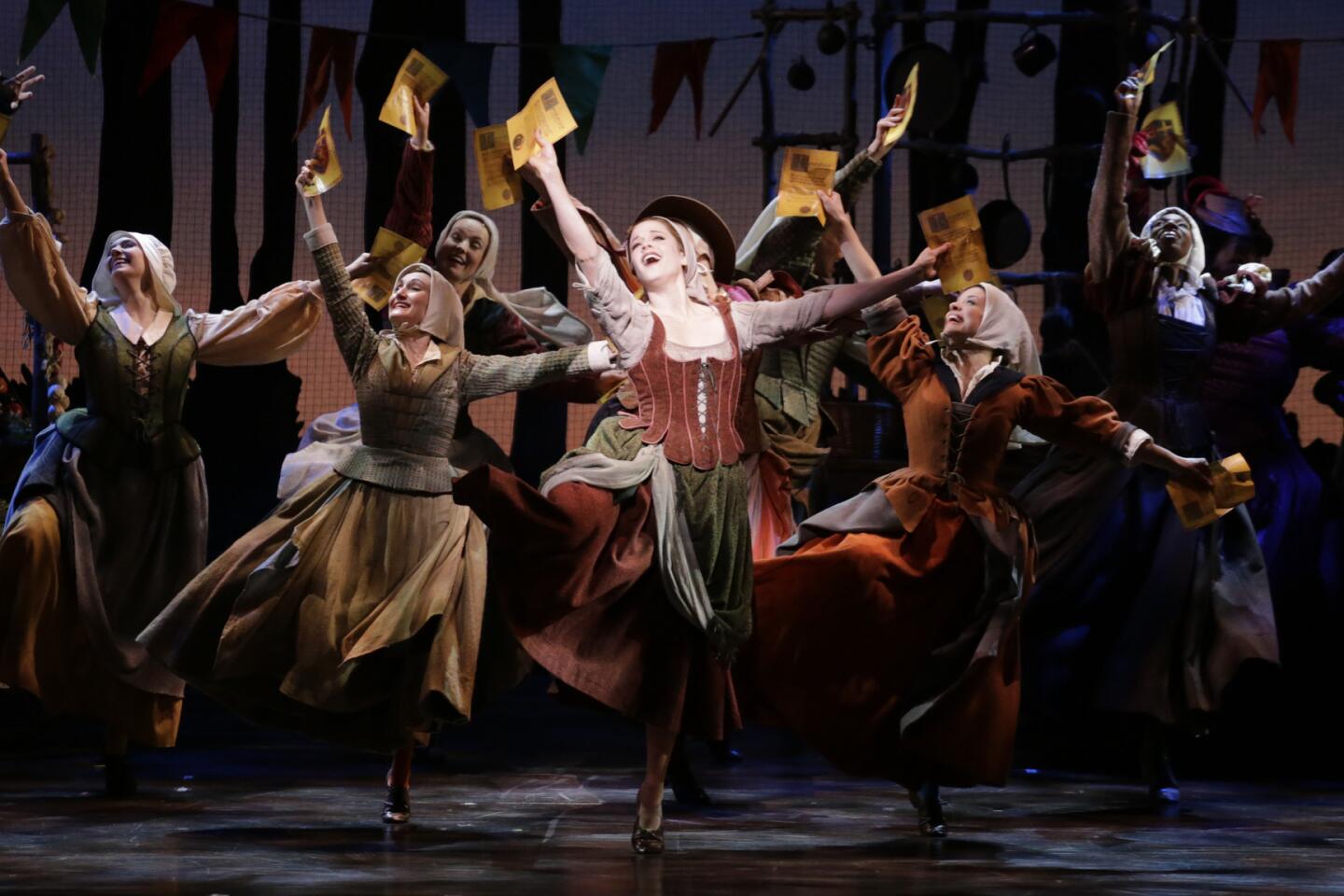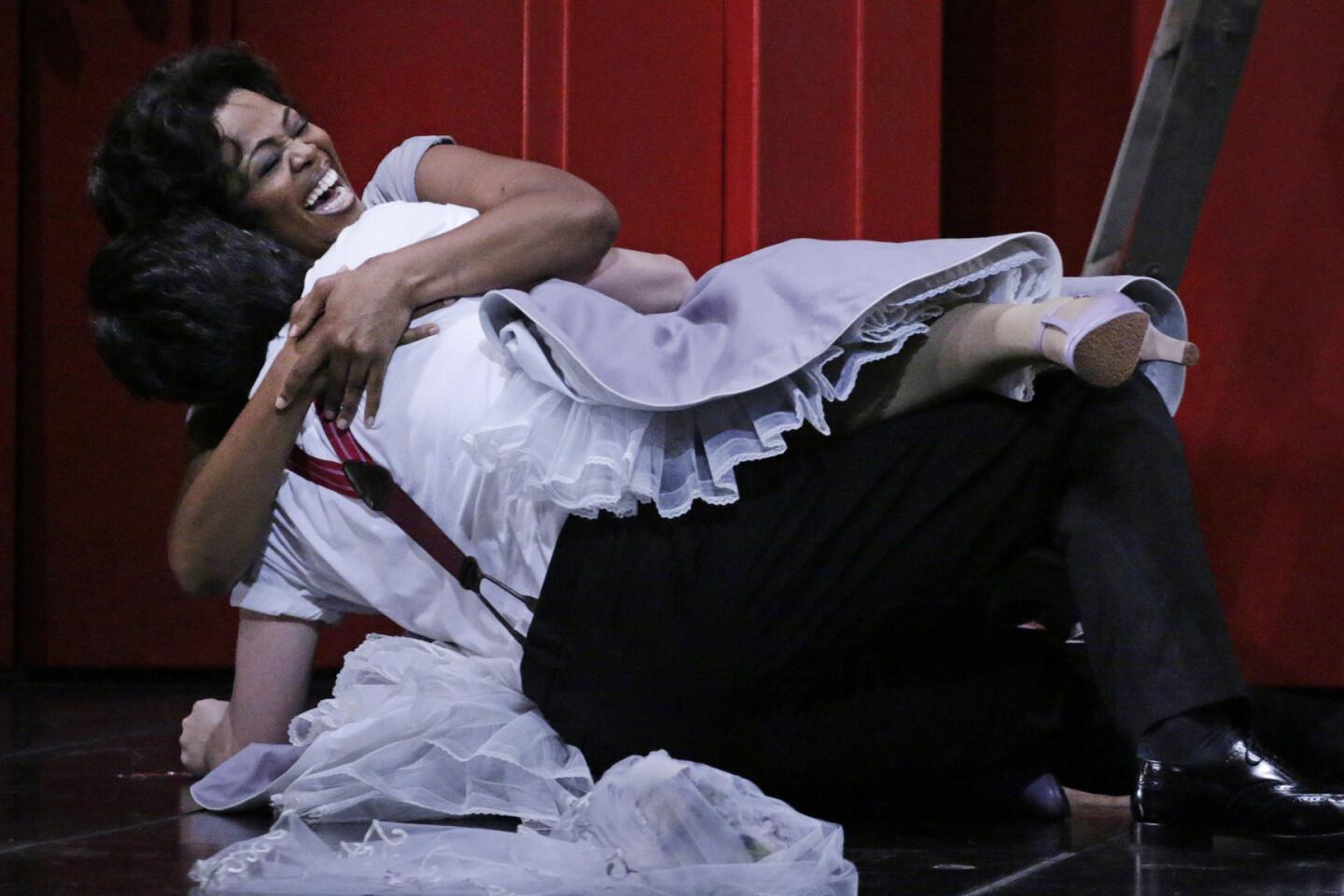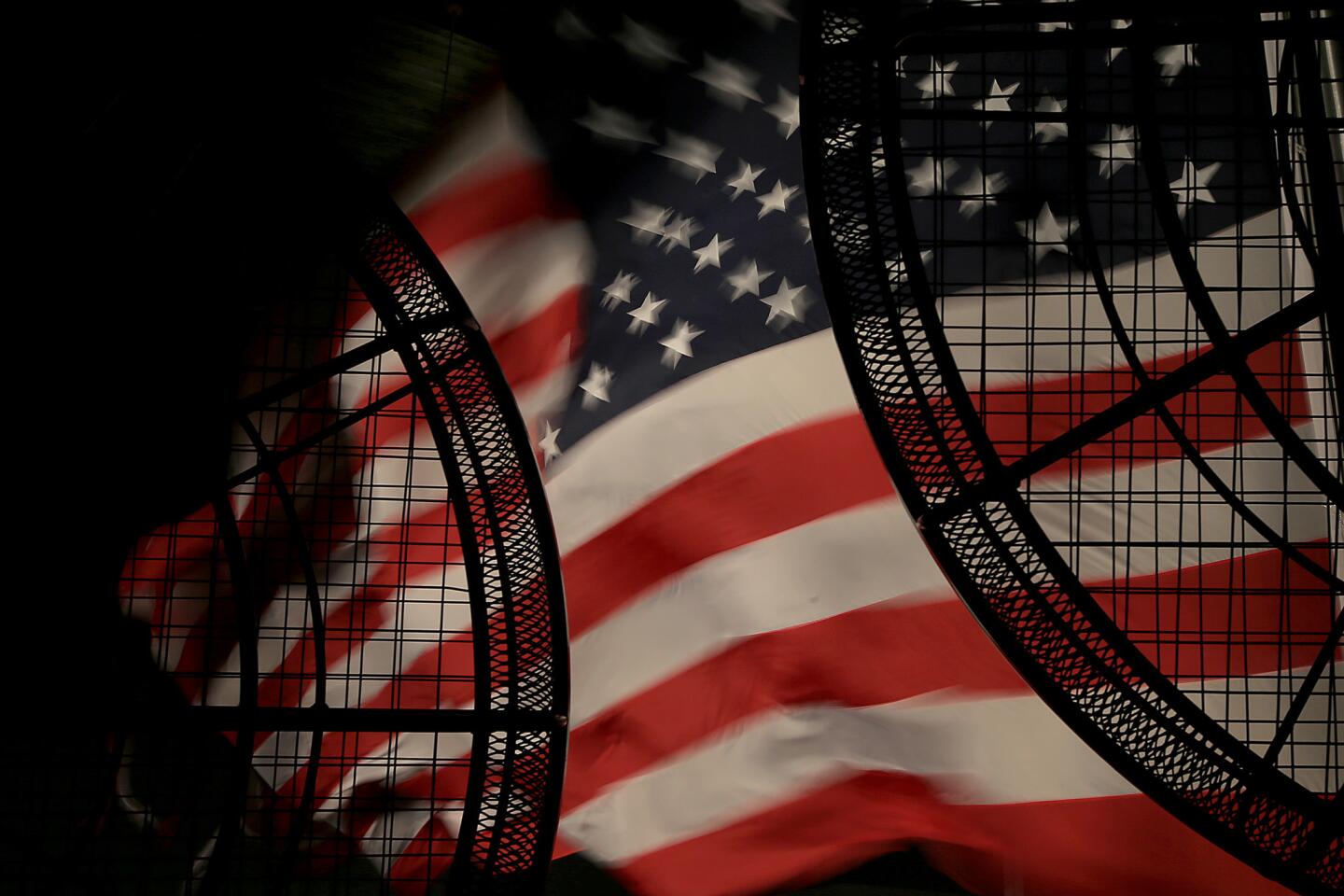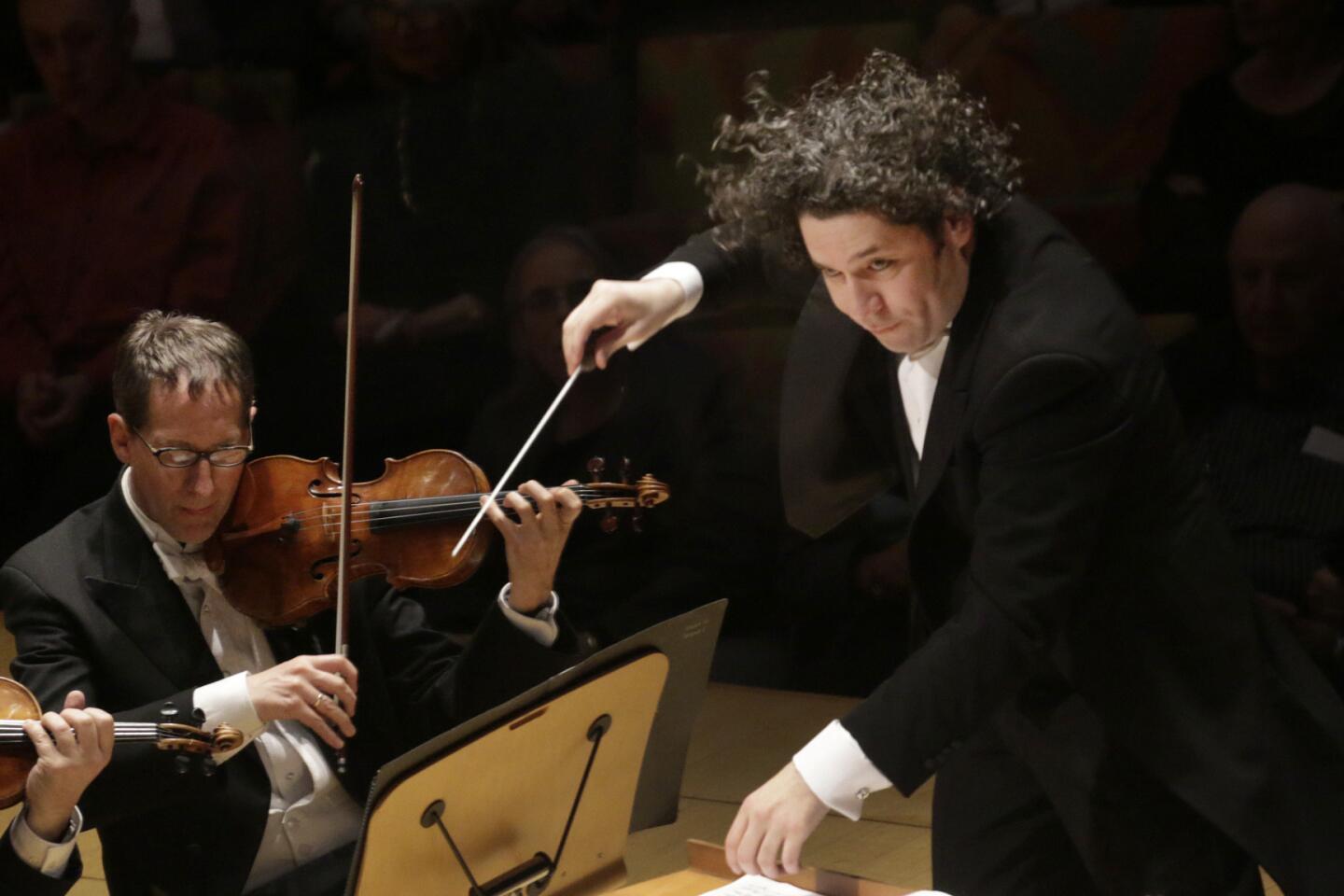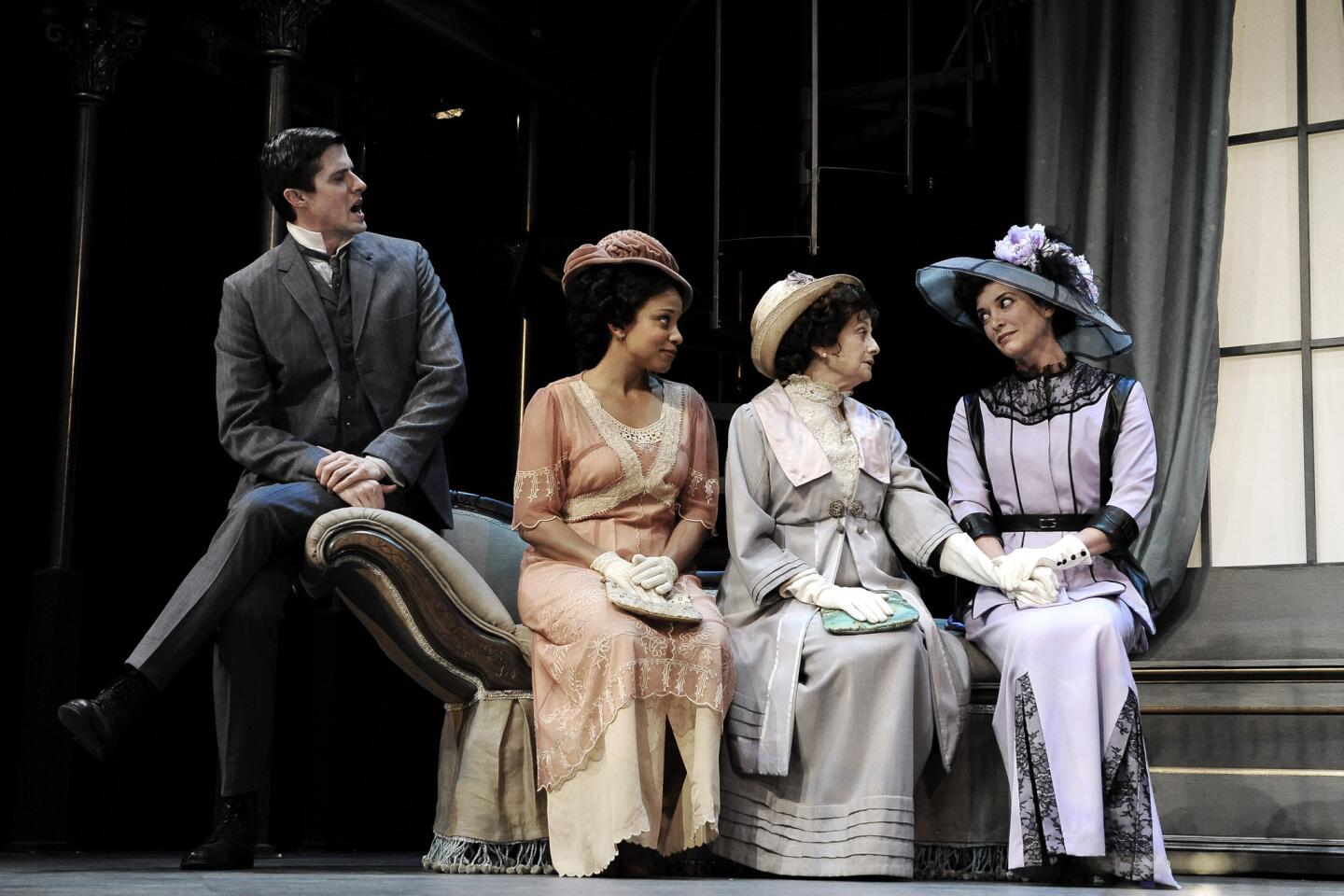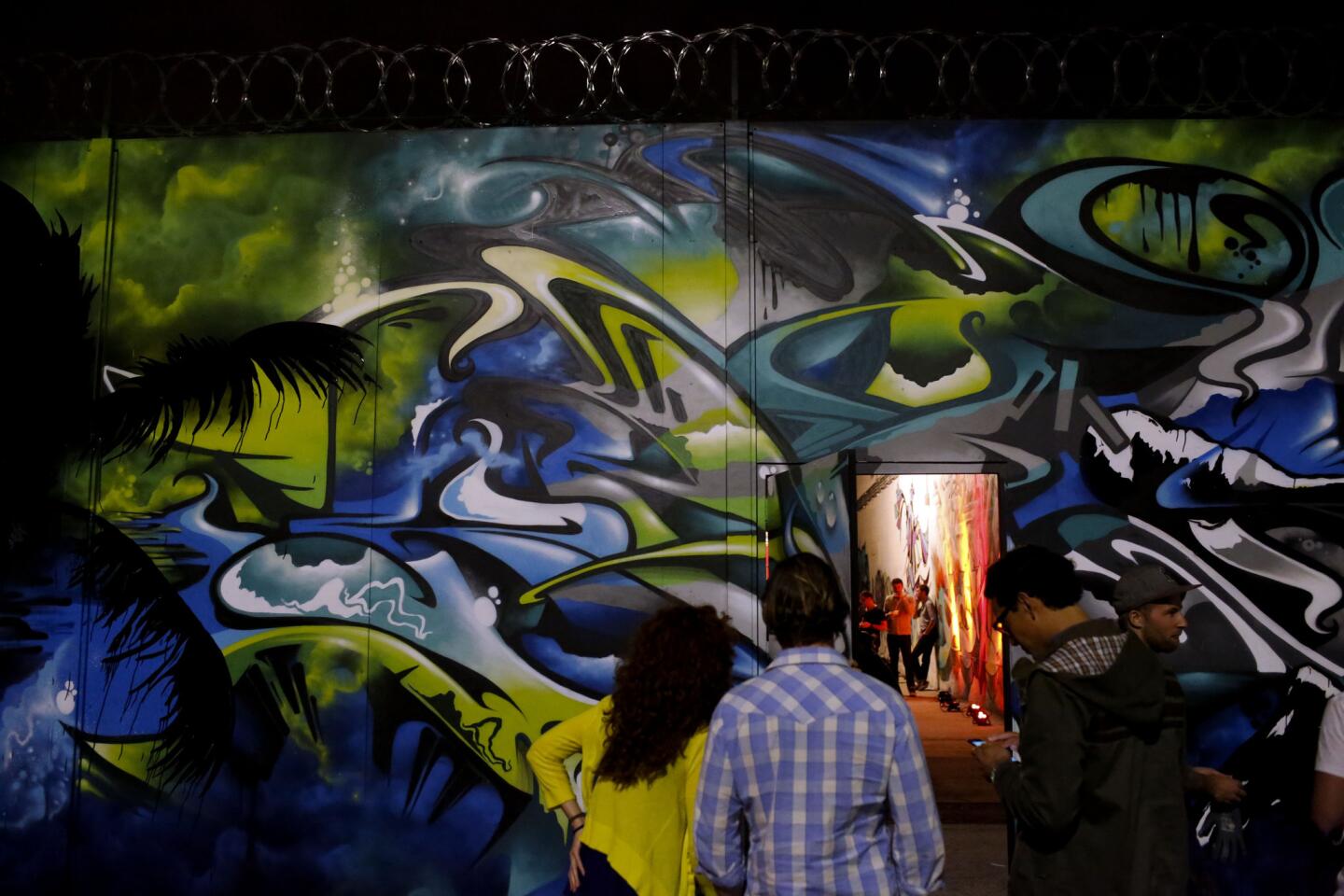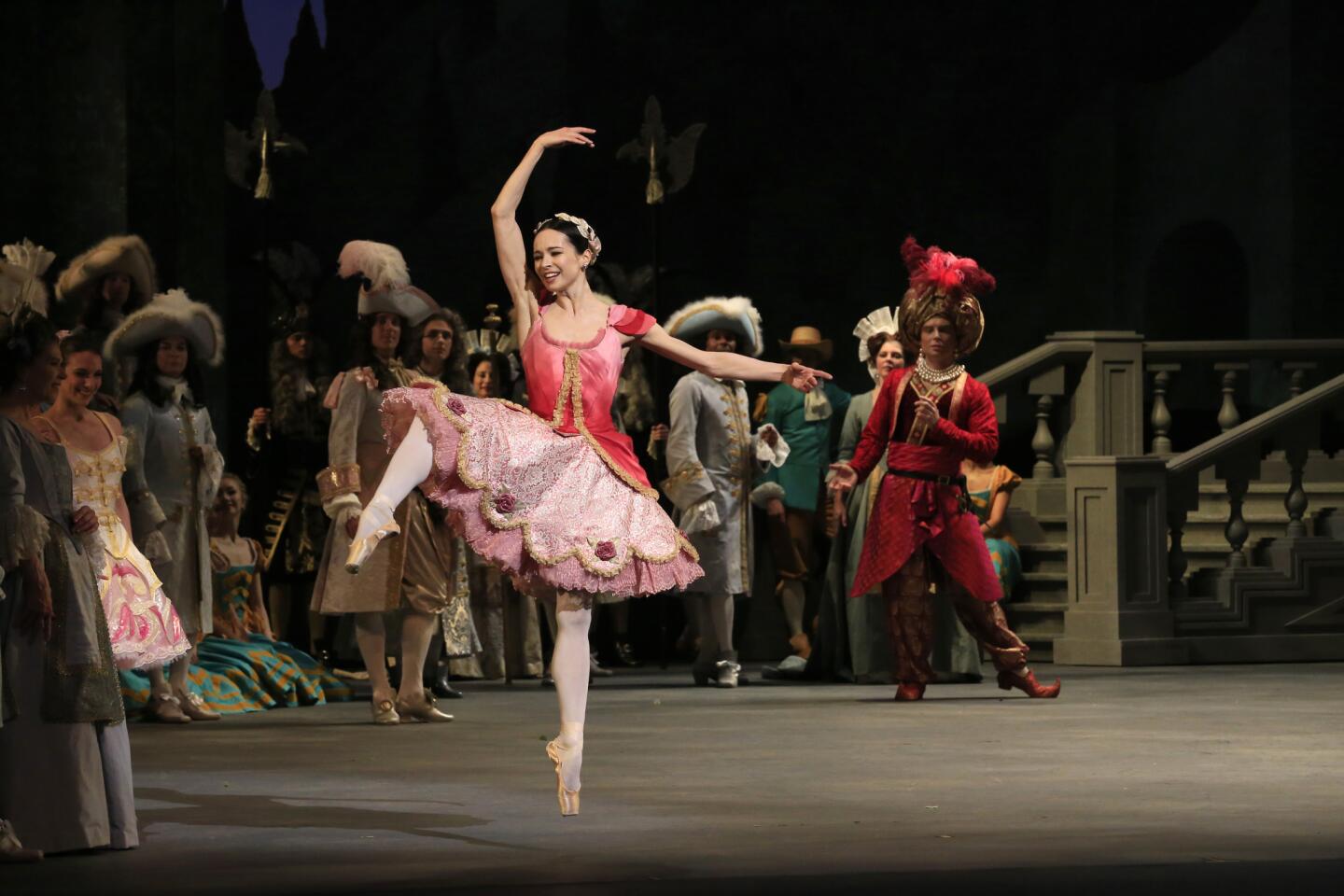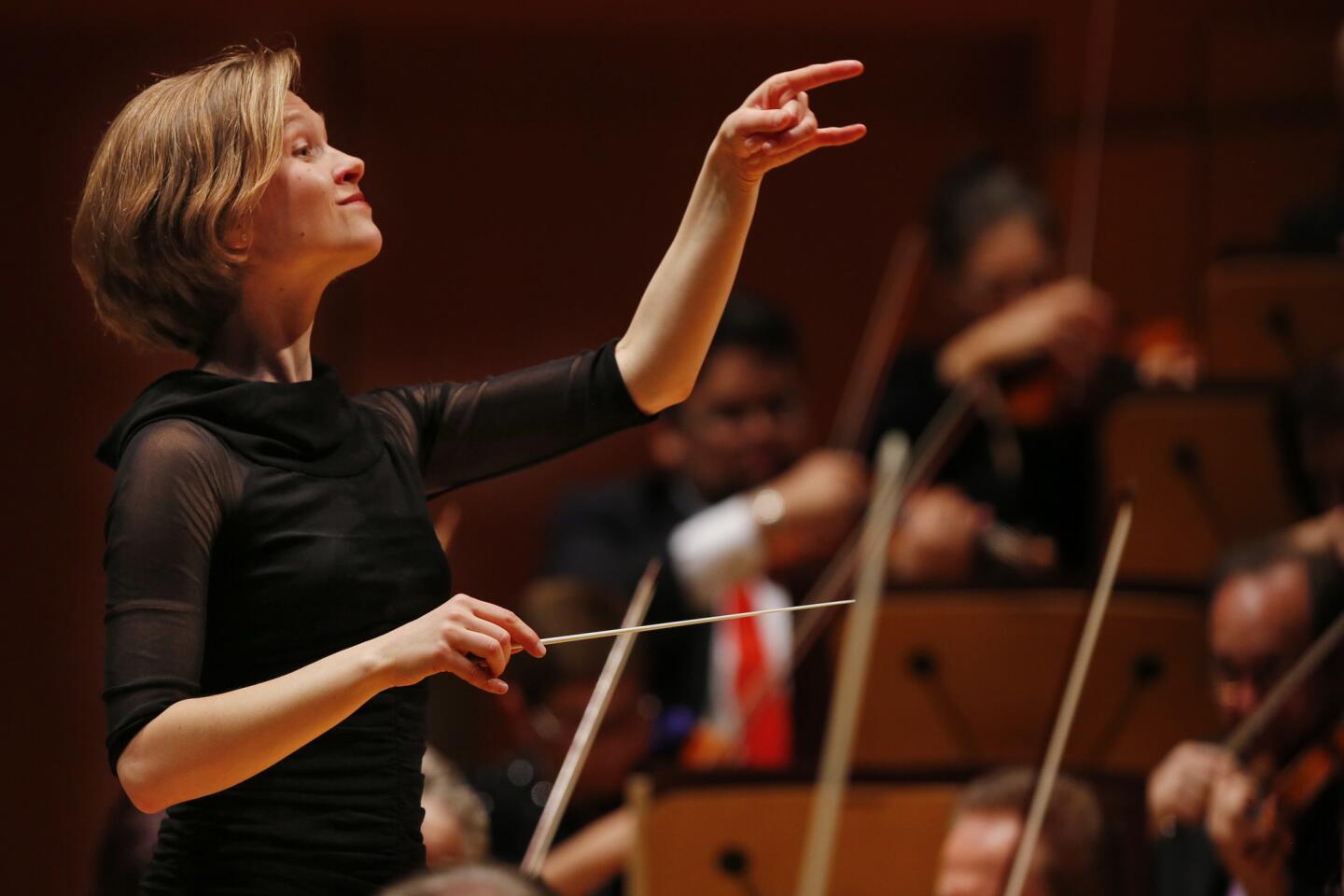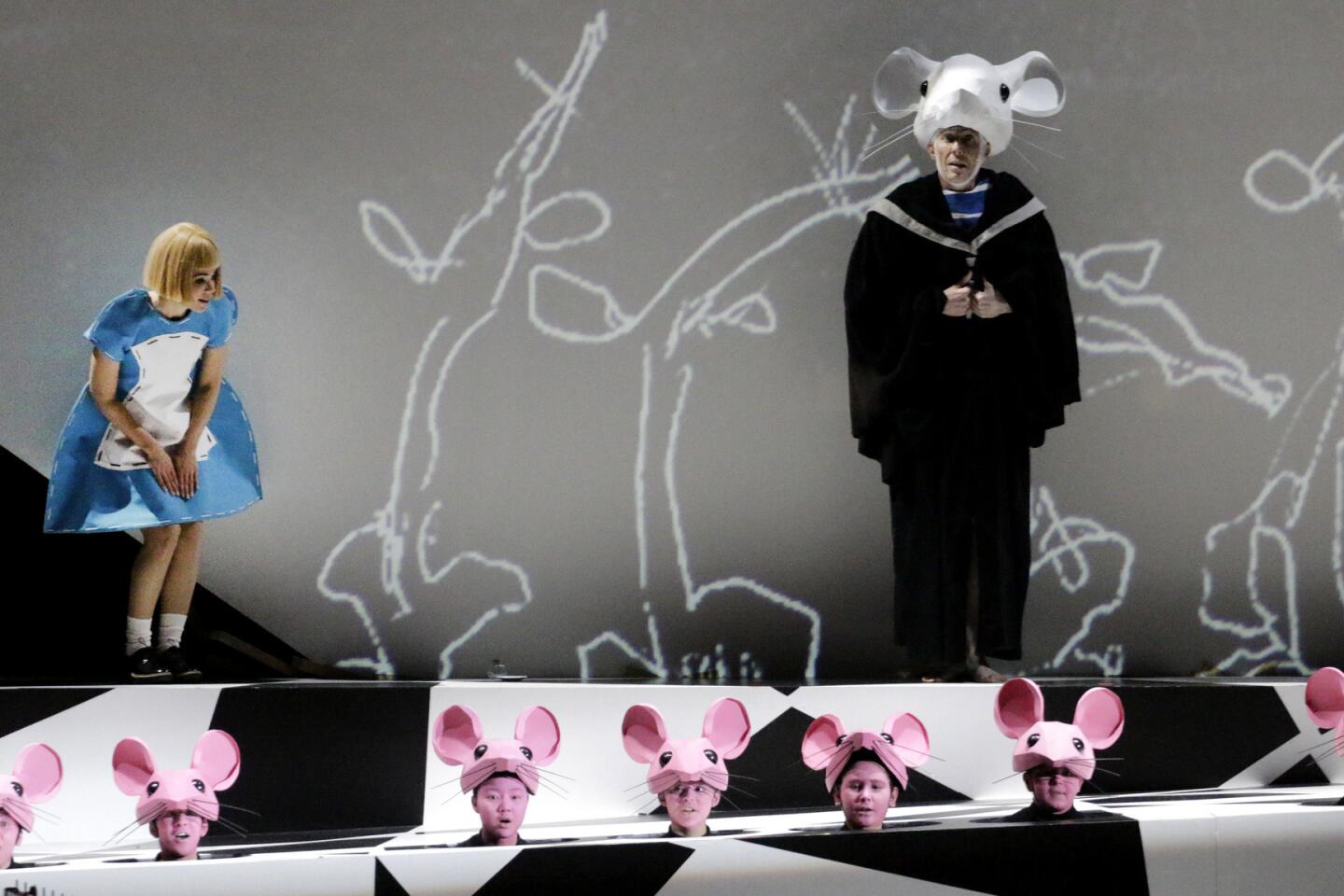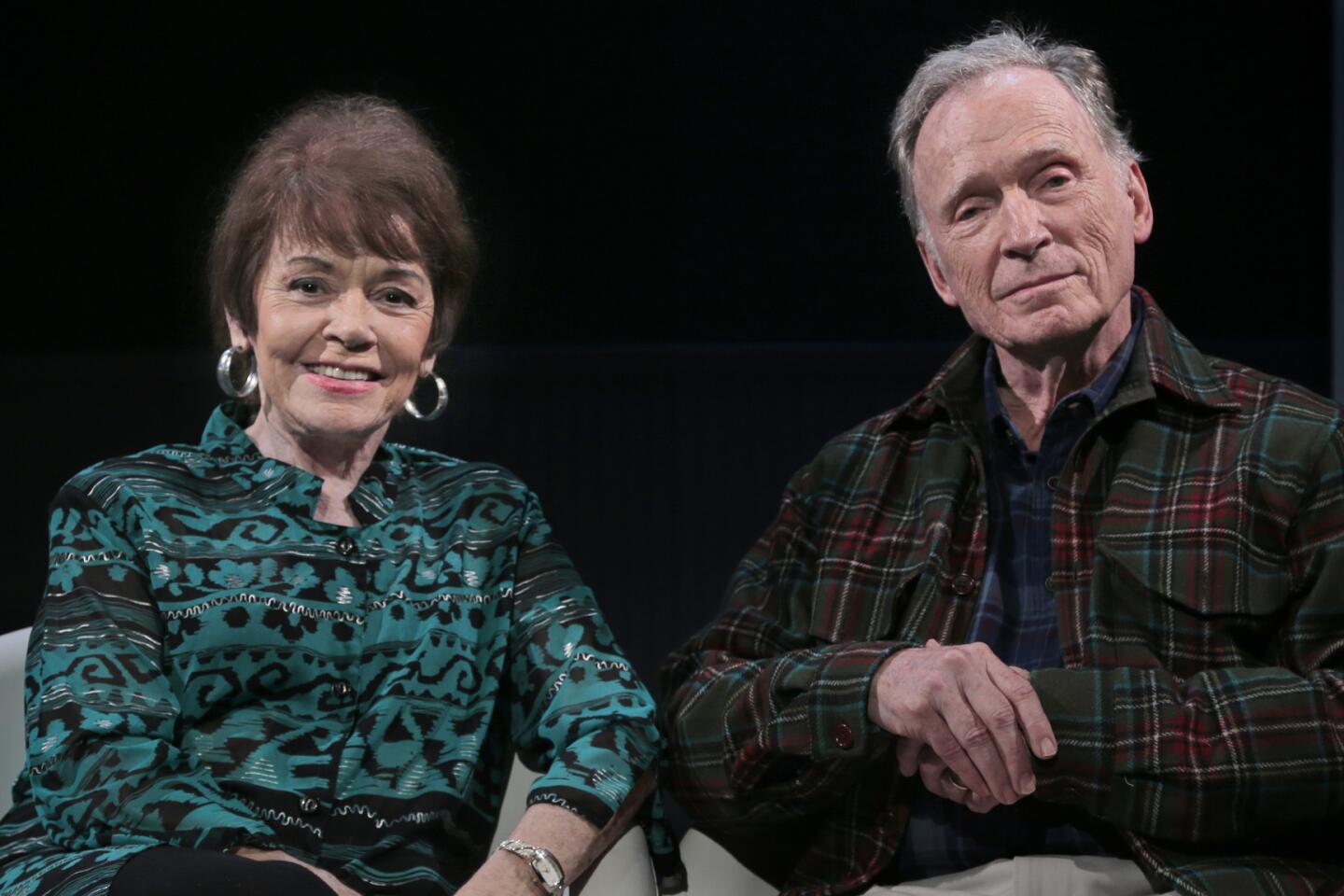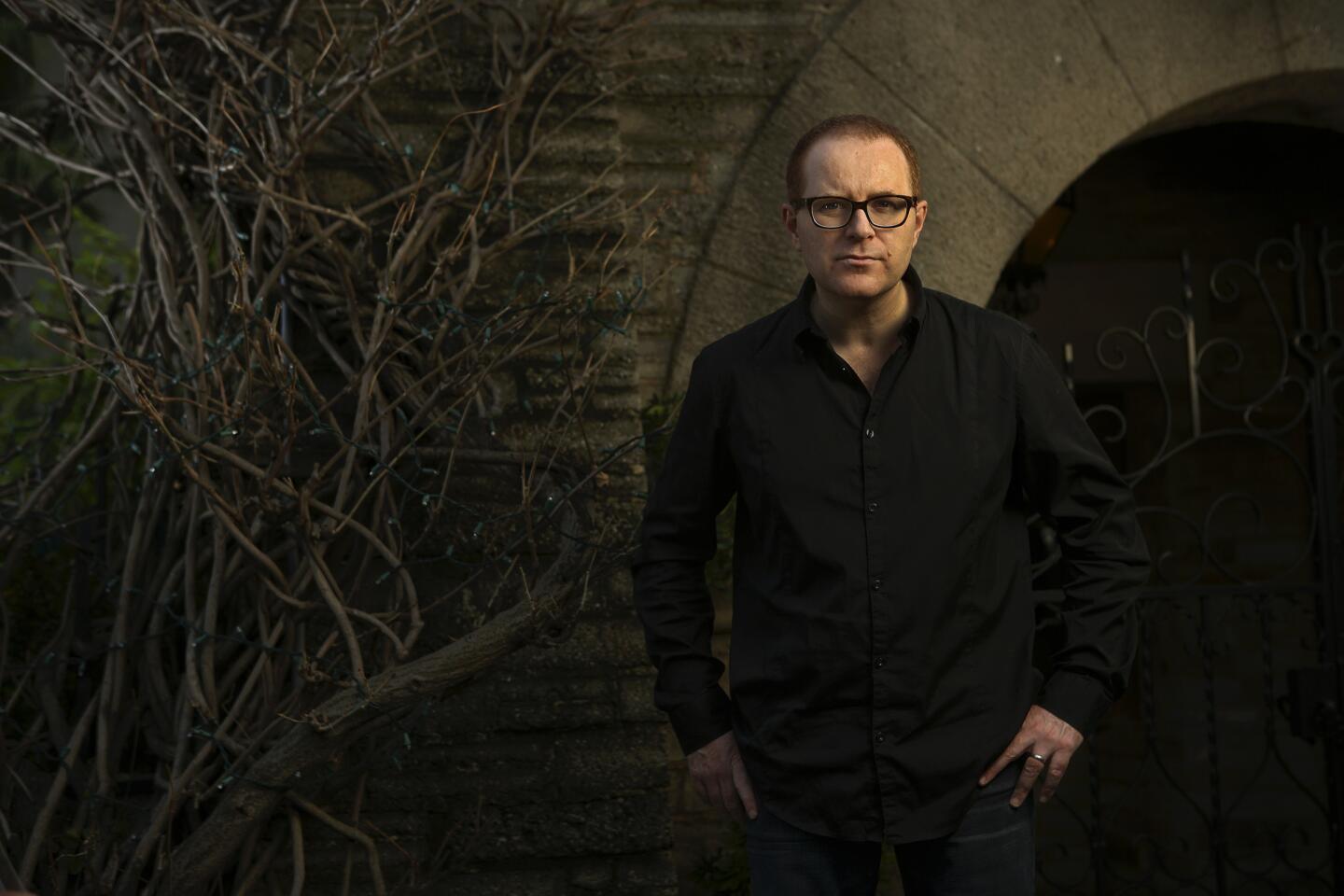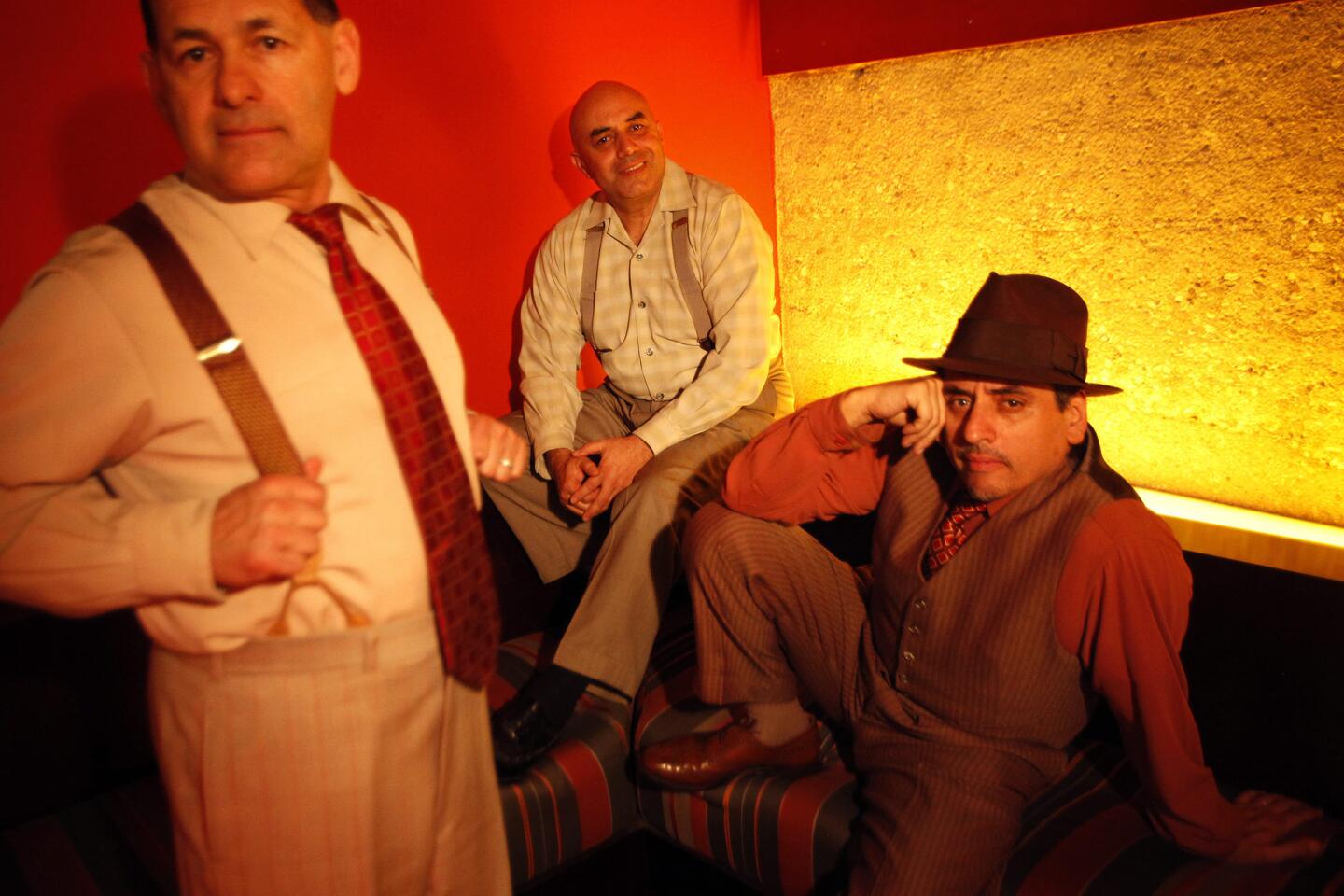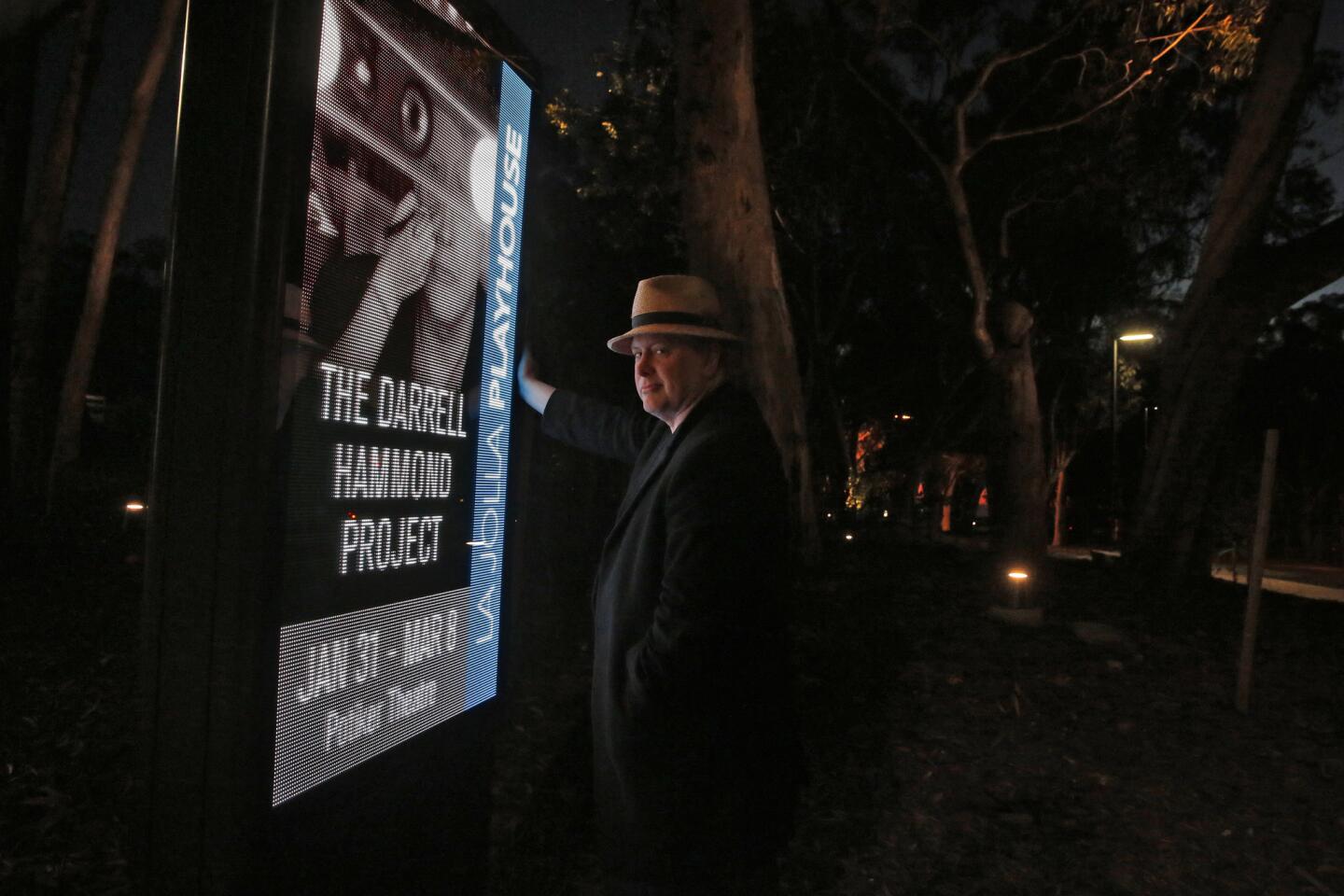‘Breaking Through’ shows seamy side of stoking the star-making machinery
There are no people like show people for gazing in the mirror, becoming enchanted with what they see and channeling it into yet another production for stage or screen. The urge to tell yarns about people bent on the entertainment spotlight — or bent by it — remains a constant amid ground-shaking changes in showbiz itself.
Even leaving out fact-based stories such as “Funny Girl” or “Jersey Boys,” this kind of fare abounds, from “Dreamgirls” to “The Rose” to the more recent “Once.” Now the network television series “Empire” and “Nashville” have carried the genre into the present and onto the small screen.
SIGN UP for the free Essential Arts & Culture newsletter >>
Next in line is “Breaking Through,” a new stage musical that opens Sunday at the Pasadena Playhouse. With a title that makes no secret of its theme, it looks at the seamy side of the music industry’s star-making machinery.
Acoustic-guitar-toting protagonist Charlie Jane aspires to be a singer-songwriter in the Sheryl Crow mold, catchily expressing what’s in her heart and mind and, she hopes, earning a living from it as a songsmith if not a performer.
But she’s hungry enough to be coaxed into the clutches of hits-obsessed record company bosses and to go along when they make her over into a dance-pop show horse saddled with other writers’ formulaic, trend-hopping, mass-appeal fodder.
When the heroine’s first manufactured track as a sexy vixen goes to No. 1, all is poised for her packaging as a major star, including a fake tabloid romance with a Justin Timberlake-like singer who’s on her label and a sordid reality show in which she’ll win the public’s heart by milking personal wounds. All she has to do is stop being the woman and the artist she thought she was.
The idea for the show was hatched about six years ago by Katie Kahanovitz and Cliff Downs, songwriters out of New York and Nashville, respectively, who are new to writing stage musicals but came to it with advanced educations in the music business’ school of hard knocks.
They were joined more recently by Kirsten Guenther, an emerging New York-based playwright who has fleshed out the story and written the script. Guenther’s main mission, says Sheldon Epps, the Pasadena Playhouse artistic director who’s directing “Breaking Through,” was to darken what he felt was an overly “bubblegum” earlier approach to the material.
The Alabama-raised Downs was part of a 1980s pop duo, Downs and Price, who were signed and produced by Atlantic Records co-founder Ahmet Ertegun, a beloved figure decidedly unlike the suit-clad Mephistopheles who runs the record company in “Breaking Through.” After one album, Downs grew disenchanted with life as a recording and touring artist but forged a career as a producer, song publisher and songwriter (including a Daytime Emmy Award in 2000 as co-writer of a song heard on the soap opera “One Life to Live”).
Kahanovitz, 26, spent about six years, starting in the early 2000s, trying to make it as a touring independent teen-pop performer who opened for the likes of Aaron Carter and the Jonas Brothers. Performing as Katie Neil, she says, she was urged to keep an obsessive watch on the Billboard singles chart and take cues from whatever was currently hot.
“I certainly didn’t like it,” she said in a recent interview at the Playhouse. “But everything I was doing was influenced by what would be the sure shot to fame.”
Kahanovitz said she soured on the music business at 18 when a record company that had offered her a contract suddenly went out of business. She became a communications major at Marymount Manhattan College, then decided her experiences might have the makings of a stage musical. She enlisted Downs, who’d written songs with her when she was trying to break through as a performer.
Downs said they felt no trepidation about adding yet another title to the long list of entertainments about people striving for stardom.
“Sometimes you can tell the same story over and over, and it works,” he said. “You have to create a likable heroine — make her relatable, and [the audience will] pull for her.”
While “Breaking Through” went through its long gestation — not uncommon for stage musicals — an ongoing earthquake rumbled through the business it aims to represent. The show arrives amid the continuing liquefaction of the traditional recording industry as cheap pick-and-choose options on the Web supplant the expensive, album-length releases that labels and their acts counted on for most of their profits.
“Breaking Through” may be about a now-endangered species, its co-creators concede — but gorillas, tigers and elephants also are on endangered lists, and nobody finds them any less compelling.
“I still think record companies have a lot of power,” Kahanovitz said. And even if that power has declined, more than 10 million weekly viewers have been willing to suspend their disbelief to watch the high-stakes power games surrounding Empire Records on the Fox series “Empire” — a show whose rise the “Breaking Through” team sees as a good omen.
Epps said he’s thought a lot about trying to make “Breaking Through” different from other tales about showbiz ambitions.
“What makes this story distinctive is that [the lead character] has a real authentic desire to express herself,” Epps said. “We’ve made sure we’re focusing on this as a story about artistry and authenticity, and a young woman who is not necessarily on the climb to stardom” — at least not if she knows what’s good for her.
A bigger question is why stories about entertainers are such a staple of our entertainment diet. Could it be that America, whose founding principle was a revolutionary rejection of aristocracy, finds it necessary to substitute artists and entertainers for titled lords and ladies?
Epps noted how comfortably musicians take to aristocratic nicknames — for example, Count Basie, Duke Ellington, Queen Latifah, Elvis “The King” Presley and Michael “King of Pop” Jackson.
“There’s a crowning of [entertainers] as American aristocracy, which can make their great falls all the more darkly intriguing,” Epps said.
But he also sees a more populist motive for our fascination with stars and their stories.
“It’s kind of a human equalizer that says even those who ascend to a heavenly place, by right of great talent or luck or whatever, can be subject to great frailty and falls,” Epps said. “Maybe that gives the rest of us hope that we’re not the only ones with challenges and troubles, with personal and professional issues to deal with.”
Follow me on Twitter @boehmm
------------
‘Breaking Through’
Where: Pasadena Playhouse, 39 S. El Molino Ave.
When: 8 p.m. Tuesdays to Fridays, 4 and 8 p.m. Saturdays, 2 and 7 p.m. Sundays. Ends Nov. 22.
Tickets: $25 to $87
Contact: (626) 356-7529, pasadenaplayhouse.org
ALSO:
Benedict Cumberbatch’s ‘Hamlet’ is good and righteous; lifts London broadcast
The cult persona of Courtney Love in ‘Kansas City Choir Boy,’ more concert than musical
Clive Owen and Sam Rockwell hit Broadway in ‘Old Times’ and ‘Fool for Love’ with different results
More to Read
The biggest entertainment stories
Get our big stories about Hollywood, film, television, music, arts, culture and more right in your inbox as soon as they publish.
You may occasionally receive promotional content from the Los Angeles Times.
